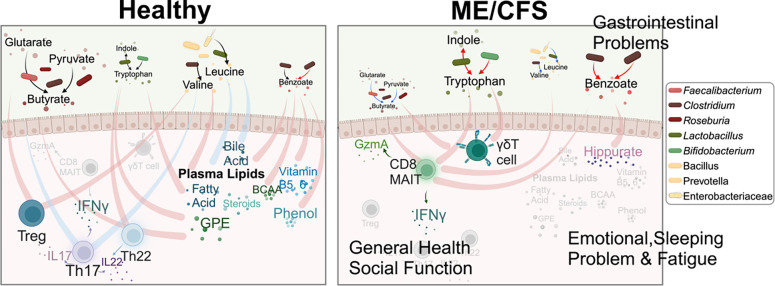Figure 5: Overview of Dysbiotic Host-Microbiome Interactions in ME/CFS.
This conceptual diagram visualizes the host-microbiome interactions in healthy conditions (left) and its disruption and transition into the disease state in ME/CFS (right). The base icons of the figure remain consistent, while gradients and changes in color and size visually represent the progression of the disease. Process of production and processing is represented by lines with arrows, where the color indicates an increase (red) or decrease (blue) in the pathway in disease; lines without arrows indicate correlations, with red representing positive and blue representing negative correlations. In healthy conditions, microbial metabolites support immune regulation, maintaining mucosal integrity and healthy inflammatory responses by positively regulating Treg and Th22 cell activity, and controlling Th17 activities, including the secretion of IL17 (purple cells), IL22 (blue), and IFNγ. These microbial metabolites also maintain many positive interactions with plasma metabolites like lipids, bile acids, vitamins, and phenols. In ME/CFS, there is a significant decrease in beneficial microbes and a disruption in metabolic pathways, marked by a decrease in the butyrate (brown-red dots) and BCAA (yellow) pathways and an increase in tryptophan (green) and benzoate (red) pathways. These changes are linked to gastrointestinal issues. In ME/CFS, the regulatory capacity of the immune system diminishes, leading to the loss of health-associated interactions with Th17, Th22, and Treg cells, and an increase in inflammatory immune activity. Pathogenic immune cells, including CD8 MAIT and γδT cells, show increased activity, along with the secretion of inflammatory cytokines such as IFNγ and GzmA, contributing to worsened general health and social functioning. Healthy interactions between gut microbial metabolites and plasma metabolites weaken or even reverse in the disease state. A notable strong connection increased in ME/CFS is benzoate transformation to hippurate, associated with emotional disturbances, sleep issues, and fatigue. Abbreviations: IFNγ, Interferon gamma; Th17, T helper 17 cells; Th22, T helper 22 cells; Treg, Regulatory T cells; GzmA, Granzyme A; MAIT, Mucosa-Associated Invariant T cells; γδT, Gamma delta T cells; BCAA, Branched-Chain Amino Acids; GPE, Glycerophosphoethanolamine.

